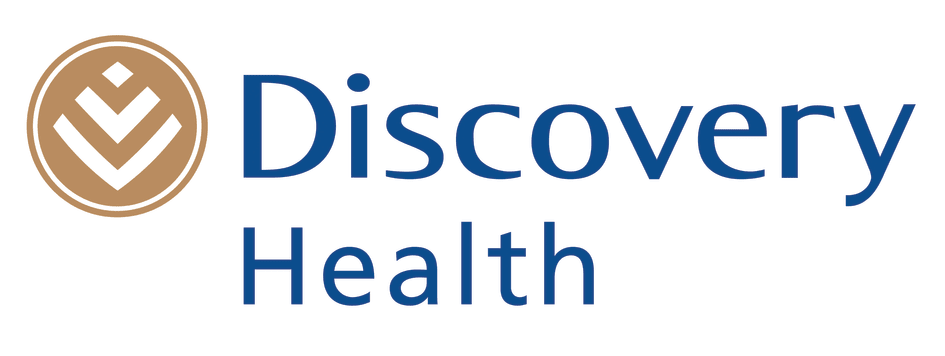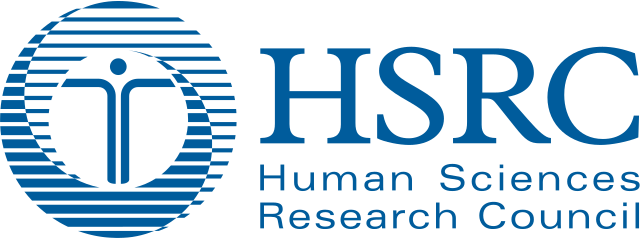PILOT PROJECTS
The goal of the pilot projects is to broaden the research objectives of the hub by including projects that assess the effects of extreme weather on health and projects that explore additional pathogens beyond SARS-CoV-2 and HIV. Additionally, the pilot projects seek to extend the geographical scope of INFORM Africa’s research focus to additional regions in Africa with the purpose of generating new data to bear on already existing data.
In December 2022, the INFORM Africa research hub published a call for letters of interest (LOIs), and subsequently conducted a series of reviews to select applicants eligible for a full proposal submission. The selection process was concluded in July, 2023, with the selection of five (5) projects from both internal and external applicants. The pilot projects are intended to run for a period of 12 months, with total funding of $30,000 for each project selected.

PILOT PROJECT 1
Project Title: Predicting Covid-19 variants in Africa through Active Learning and Hierarchical Classification
Joicymara Xavier, PhD
Project Lead
Dr. Joicymara Xavier is a PhD in Bioinformatics from the Federal University of Minas Gerais (UFMG, Belo Horizonte, Brazil) with a Research Internship at the Center of Epidemic Response and Innovation (CERI, Stellenbosch University, South Africa). She is currently a tenured Assistant Professor at the Federal University of Vales of Jequitinhonha and Mucuri (Brazil), a Research Fellow at the School for Data Science and Computational Thinking (CERI, Stellenbosch University), a Data Science consultant in the DS-I INFORM Africa project, and the Principal Investigator of the INFORM Africa pilot project titled “Predicting COVID-19 variants in Africa through Active Learning and Hierarchical Classification.
PROJECT DESCRIPTION
An ongoing challenge in the Covid-19 pandemic is the timely and accurate classification of SARS-CoV-2 sequences with the plethora of available genomic data. Two popular tools for the dynamic classification of SARS-CoV-2 genetic lineages are Phylogenetic Assignment of Named Global Outbreak Lineages (PANGOLIN) and Nextclade (of Nextstrain). However, these tools are not designed to automatically identify new variants. Potential new variants need to be flagged by users and these alerts are then addressed by manual curation and assignment of new lineages. Fast identification of new variants is very important for public health response, particularly now that the sequencing rates are decreasing. Here, we propose to develop a new machine learning pipeline that classifies SARS-CoV-2 sequences and can detect new variants. We plan to use a hierarchical classification framework in tandem with an Active Learning (AL) technique to detect potential new SARS-CoV-2 variants in near real time. AL is a type of machine learning technique where, in addition to training on known truth data, the algorithm identifies the most relevant unknown data points and queries for human input. The output of this project will be directly usable by public health officials thereby enabling informed and timely public health responses. Furthermore, lessons learned in this classification task may be transferred to other pathogens.
AIMS
To evaluate and identify the most efficient features to classify hierarchy SARS-CoV-2 lineages. We will analyze existing sequence-based signatures to use in the hierarchical classification of SARS-CoV-2 sequences, generating classes of features that will be used to predict Pango nomenclature.
To develop a Machine Learning model using Active Learning techniques to identify unknown lineages. We will use the identified features to develop a method capable of identifying and reporting unknown SARS-CoV-2 lineages to identify variants from these lineages.
To use a statistical method to identify and report new variants to specialists. We will evaluate statistical models that can be used to identify characteristics of potential new variants and inform specialists. This model will be applied to the lineages identified for Aim 2.
ACTIVITIES
The pilot project kicked off in November 2023 with the hire of a research assistant, Daniel van Zyl. The research assistant conducted research into the best approaches of extracting features from viral genomic sequences and investigating which machine learning models work best with the feature extraction techniques investigated.
The first case studies were conducted on HIV, SARS-CoV-2, and Dengue. Shortly into our work, we realized that using counting-based feature extraction techniques in combination with random forest classifiers achieved such high classification accuracy that the human-in-the-loop approach for manual sequence annotation is not required. Instead, we identified that an alignment-free feature extraction approach that creates sequence profiles based on k-Mer counting holds multiple promising advantages. We showed that it was possible to achieve very high classification accuracy while requiring very limited computational resources. Excitingly, our work shows that classification using our pipeline is magnitudes faster than traditional alignment-based subtyping tools while maintaining comparable classification accuracies.
Secondly, we identified that the same methodological approaches can be applied to unassembled sequences. In preliminary experiments, we found out that we can classify unassembled Dengue sequences with high accuracy, which would skip the computationally expensive assembly step of genomic sequences.
Lastly, we identified two major promising research avenues that have opened up with our alignment-free classification approach. They include:
- Identifying possible variants of concerns by developing anomaly detection methods directly to our trained models and incorporating them into the classification pipeline.
- We have reasons to believe that it is relatively easy to identify sequence regions that are important for classification as well as tuning our models to be able to classify sequences even under severe sequence degradation scenarios.
This project yielded two manuscripts considered for peer-review journals revisions (BMC Genomics/ ISMB/ECCB 2025)(as of March 2025).
A website (https://fast.pathotrack.health/ ) was also developed using external funds (Dr. Dunaiski, Computer Science Division, Stellenbosch University) to make the classification pipeline available to the public. This project was executed from December 2024 through February 2025 and concluded in a prototype website that allows users to upload Covid-19 or Dengue sequences to be classified using the models developed by this INFORM AFRICA pilot project.

PILOT PROJECT 2
Project Title: Vaccine coverage mapping: important tool for pandemic preparedness
Kenneth Enwerem,MBBS,MSc
Project Lead
Kenneth Enwerem is public health physician and epidemiologist with more than ten years of experience in Humanitarian Emergency Program Management and community health programs planning, implementation and monitoring. He is currently the Surveillance and Epidemiology Lead with the Global Health Security (SECURE Nigeria) Project at the International Research Centre of Excellence, Institute of Human Virology in Abuja, Nigeria where he provides technical and operational leadership in the implementation of surveillance for projects within the SECURE Nigeria project including Acute Febrile Illness (AFI) and Adverse Events following Immunization (AEFI), Infection Prevention and Control (IPC) as well as Integrated Disease Surveillance Research for priority diseases. He also coordinates the implementation of the Acute Febrile Illness Surveillance Project at NCDC and leads the Vaccine Coverage Mapping Project at INFORM Africa (IHVN).

Victoria Etuk, MSc
Co-Lead
Victoria Etuk is an early career, infectious disease epidemiologist, with research interests in Global Health Security, HIV, TB and vaccination. She holds a Bachelor of Pharmacy degree, and a Master’s degree in Field Epidemiology. She currently serves as a Surveillance and Epidemiology Specialist/Data Analyst at the International Research Centre of Excellence of the Institute of Human Virology, Nigeria.
PROJECT DESCRIPTION
The vaccine coverage mapping project aims to determine the effect of Covid-19 vaccination coverage on Covid-19 disease incidence across different states in Nigeria. The project seeks to achieve this by developing a mapping tool/ dashboard which triangulates Covid-19 vaccination coverage data and Covid-19 incidence data. The mapping tool will serve as evidence for pandemic preparedness for future pandemics utilizing vaccines in prevention and response.
AIMS
To determine the Impact of Vaccination Coverage on Geographical Disease Prevalence
To identify Factors Associated with Vaccine Coverage Variations Across Regions
ACTIVITIES
The project has integrated multiple data sources, including Covid-19 vaccination records, Covid-19 disease surveillance data, and population data.
A key milestone of the project has been the development of a dashboard that triangulates Covid-19 vaccination data with Covid-19 disease surveillance data. The dashboard has since gone live. It currently displays thirteen indicators across three modules. A dashboard guide for users of the dashboard has also been developed.
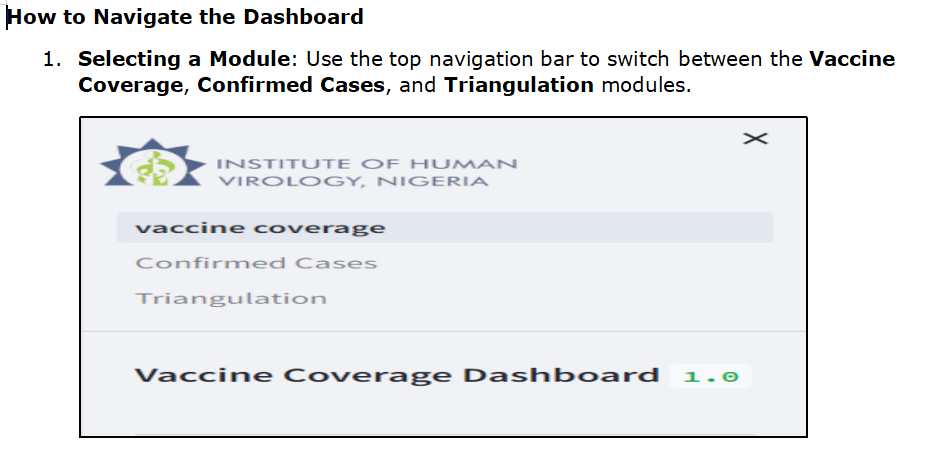
The team is conducting advanced statistical and geospatial analyses to integrate vaccination data, disease burden, and PRI indicators. The results will be developed into two manuscripts for publications.
Also, the team is working towards strengthening engagement with the Nigeria Centre for Disease Control and Prevention (NCDC) and the National Primary Health Care Development Agency (NPHCDA) to finalize dashboard review and launch the dashboard for use by stakeholders. A dissemination meeting is planned for sharing research findings and opportunities for use of the dashboard to improve immunization programming.
PILOT PROJECT 3
Project Title: Understanding drivers of Covid-19 resilience in Africa and plan for future pandemics: A data science approach using the CARTA Evidence data
TEAM MEMBERS

Kennedy Otwombe, PhD
Project Lead

Jude Igumbor, PhD
Co-Lead
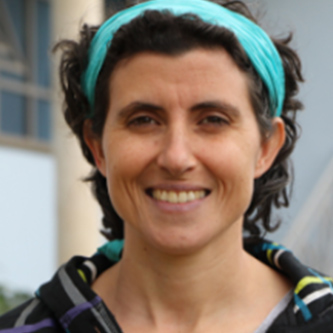
Marta Vicente-Crespo
TEAM MEMBER
PROJECT DESCRIPTION
The global designation of Covid-19 as a pandemic posed substantial challenges for both affluent and impoverished nations. While wealthier countries experienced a rapid surge in infections and mortality rates, concerns were raised about the potential impact on resource-poor regions, particularly Africa. Leaders and scientists in Africa initiated strategic planning to address the anticipated high rates of infection and mortality. Contrary to expectations, Africa did not witness the projected surge, prompting inquiries into resilience and pandemic preparedness. The lack of reliable, Africa-specific Covid-19 data hindered understanding, emphasizing the need for a comprehensive policy framework incorporating diverse data sources and utilizing AI and machine learning.
The global designation of Covid-19 as a pandemic posed substantial challenges for both affluent and impoverished nations. While wealthier countries experienced a rapid surge in infections and mortality rates, concerns were raised about the potential impact on resource-poor regions, particularly Africa. Leaders and scientists in Africa initiated strategic planning to address the anticipated high rates of infection and mortality. Contrary to expectations, Africa did not witness the projected surge, prompting inquiries into resilience and pandemic preparedness. The lack of reliable, Africa-specific Covid-19 data hindered understanding, emphasizing the need for a comprehensive policy framework incorporating diverse data sources and utilizing AI and machine learning.
AIMS
Our primary goal is to utilise cutting-edge data science approaches to understand drivers of Covid-19 resilience and plan for future pandemics drawing from lessons learned from containing Covid-19 in Africa.
Specific Aim 1
To collate and curate Covid-19 data from different regions of Africa using the CARTA-Evidence platform
Specific Aim 2
To determine the primary drivers of Covid-19 resilience in the different regions of Africa
Specific Aim 3
To evaluate the level of preparedness for future pandemics in the African continent through lessons learn from Covid-19
ACTIVITIES
Two interns with MSc/MA degree level qualification have been Identified and will participate in the project by assisting in desktop review and downloading of datasets. Desktop review of existing literature on Covid-19. Africa specific literature is currently being reviewed using the CARTA evidence website https://cartafrica.org/ . All published papers providing their datasets in open access are being identified and downloaded. A data curation algorithm is being prepared based on the nature of data collated to allow for appending and creating a master dataset to address the study specific aims.
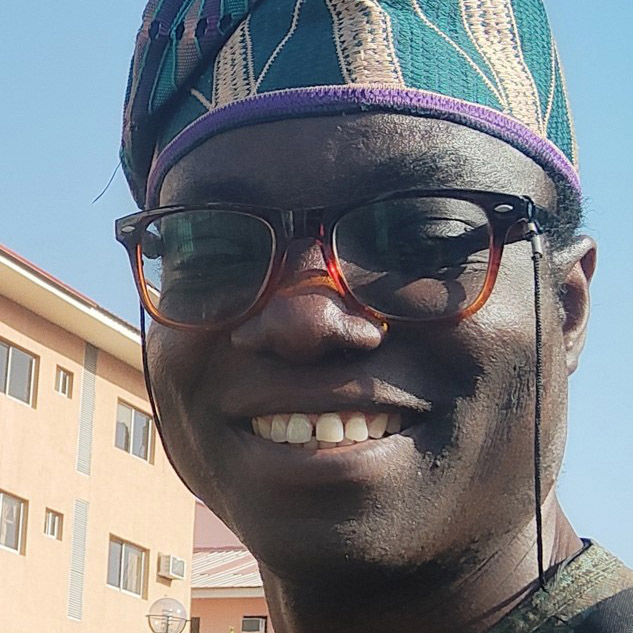
PILOT PROJECT 4
Project Title: The Place Resilience Index(PRI) has the potential to be a critical tool for Ministries of Health and Public Health organizations to prepare for and manage infectious disease outbreaks or natural disasters in Africa.
Dr. Olanrewaju Lawal
Project Lead
Dr Olanrewaju Lawal, is a highly motivated individual with a diverse background spanning the biophysical and social sciences. His expertise in Geographic Information Science, Remote Sensing, and Geocomputation has enabled him to develop cutting-edge tools, insights, and analyses for tackling complex problems. With a passion for exploring the intersection between physical and social sciences, He have leveraged the latest advancements in big data, AI, and Machine Learning to uncover new insights from data across natural and social systems.
Working as a Principal Investigator and Co-Investigator on several funded and unfunded research projects, He played a pivotal role in leading teams to complete projects successfully across a broad spectrum of disciplines. His collaborations have resulted in the development of nationally relevant spatial models and datasets, including moderate resolution economic activities, Place Resilience Indexes (Multi-hazard and Covid-19 specific), spacetime risk assessments of armed conflict, space-time risk assessments for oil and gas pipeline interdiction, models of shoreline sensitivity to oiling, maize yield susceptibility to climate change, healthcare service accessibility, flood susceptibilty models, and many others. With a track record of publishing over 70 technical reports and articles in local and international peer-reviewed journals, he is consistently diligent and methodical worker, equally confident and enthusiastic as an individual or working in a team.
His extensive experience in spatial database development, geocomputational techniques, and Geospatial Data Science has equipped him with the expertise, training, and motivation needed to successfully collaborate on and deliver on any proposed research project. He is always excited about the opportunity to continue pushing the boundaries of what’s possible in the world of geospatial analysis and making a meaningful contribution to the field.
PROJECT DESCRIPTION
The Place Resilience Index(PRI) has the potential to be a critical tool for Ministries of Health and Public Health organizations to prepare for and manage infectious disease outbreaks or natural disasters in Africa. PRIs for the African continent are limited and often, when available, are only at the national or regional level. AIM 1 develops and shares PRIs for selected African countries using recent population-based HIV impact assessments and other existing data sources. AIM 2 identifies patterns and associations between PRIs and HIV and Covid-19 epidemics. AIM 3 builds the capacity of researchers and public health officials to use their countries’ indexes.
AIMS
The aim of this project is to leverage pre-existing African data sources to develop and use PRIs for selected African countries at the 3rd-order administrative level through three specific aims.
Develop and share PRIs for selected African countries using recent population-based HIV impact assessments and other pre-existing data sources.
Identify patterns and associations between PRI and HIV and Covid-19 epidemics.
Build the capacity of researchers and public health officials to use their countries’ indexes.
ACTIVITIES
Our pilot project successfully completed the development of place susceptibility indexes for 10 different African countries, harnessing existing country data, particularly the Population-based HIV Impact Assessments funded by the President’s Emergency Plan for AIDS Relief (PEPFAR). The PRIs have been incorporated into Akros’ Reveal tool to enhance the collaborative and integrative works of INFORM Africa Projects 1 and 2.
To ensure that government and other stakeholders are equipped to work with the PRI in making data-driven decisions, we conducted a DS-I Africa-wide virtual webinar on Place Resilience/Susceptibility Indexes Utilization in Public Health, with more than 100 attendees. This webinar was followed by an on-site workshop on Place Resilience/Susceptibility Index Modeling, Exploration, and Utilization conducted at the Institute of Human Virology Nigeria in February (2025). The workshop was attended by approximately 15 participants from the National Emergency Management Agency, the National Agency for the Control of AIDS, the National Primary Health Care Development Agency, the Nigerian Centre for Disease Control, the Federal Ministry of Health, and the Institute of Human Virology Nigeria.
The workshop-webinar series was concluded with a 3-day webinar dedicated to enhancing the capacity of healthcare experts to make more data-driven public health decisions using place resilience/susceptibility indexes. The March webinar was attended by approximately 45 participants from Zambia, Tanzania, Botswana, Côte d’Ivoire, and Nigeria.
We are currently working with the INFORM Africa Admin and DMAC cores to provide public access to the PRIs through our website and other publicly accessible systems, under some terms and conditions.

PILOT PROJECT 5
Project Title: A Training Platform for Human Mobility and Health Data, Analytics, and Data-Driven Modeling- Preparing Future Data Scientists Crossing the Disciplines
Dr. Chenfeng Xiong
Project Lead
Chenfeng Xiong is an assistant Professor at the Department of Civil and Environmental Engineering, Villanova University. He holds a Bachelor’s degree in Civil Engineering from Tsinghua University, and an M.S degree in Civil Engineering, an M.A in Economics and a Ph.D in Transportation Engineering, from the University of Maryland. Chenfeng’s areas of interest include, transportation big data, human mobility and travel behavior modeling, transportation economics, carbon neutralization, large-scale agent-based analysis modeling and simulation (AMS). As a researcher, Chenfeng has published over 80 peer reviewed articles. Chenfeng is also the principal investigator of INFORM Africa project 2, and currently serves as the chairperson of DSI-Africa consortium steering committee.
The overall goal of the ‘A Training Platform for Human Mobility and Health Data, Analytics, and Data-Driven Modelling – Preparing Future Data Scientists Crossing the Disciplines” project is developing appropriate materials for knowledge transfer of transportation data and related supplementary analytical tools. The specific aims include:
- Develop online training modules for geospatial analysis and modelling using personal trips data.
- Start data-centric seed collaboration that brings interested researchers on INFORM Africa team on board to work closely with Villanova University research team.
The team successfully developed a user guide and data repository as part of the deliverables of its pilot project. The data user guide served as a detailed tutorial on how to use the data and the public repository contains daily measures of human mobility recorded in South Africa and Nigeria).
The Villanova University research team has completed the development of training modules. Led by Dr. Chenfeng Xiong and Dr. Xin (Bruce) Wu, a postdoctoral research associate at Villanova University. The project team then conducted a five-day in-person workshop from June 3–7, 2024, on geospatial analysis and modeling of personal trip data at the Institute of Human Virology, Nigeria (IHVN).
The training workshop brought together twelve researchers from diverse fields, including computer science, medical statistics, health informatics, and field epidemiology. Participants represented both government agencies and health research institutions, fostering a collaborative and interdisciplinary environment.
The training included practical, hands-on sessions focused on:
- Analyzing and visualizing geospatial mobility data
- Integrating climate change data with mobility insights
- Combining medical epidemic data with mobility trends
- Advancing research progress through collaborative exercises
Additionally, the training incorporated various data analysis and modeling methods, such as:
- Big data analysis, including point of interest (POI) location analysis
- Flood mapping using satellite imagery
- Spatiotemporal modeling and Difference-in-Differences (DiD) models for coefficient analysis
STRUCTURE OF THE TRAINING MODULES
The training program consists of three modules, designed to progressively develop participants’ technical skills. Users begin with entry-level material to build a foundation for more advanced analyses.
The first module introduced participants to geospatial data analysis, helping them become proficient in QGIS, Kepler, and Microsoft Excel. Through these tools, users gain insights into human travel behavior (Figure 1a) and learn geospatial analysis techniques to study human mobility and epidemiology trends (Figures 1b & 1c).
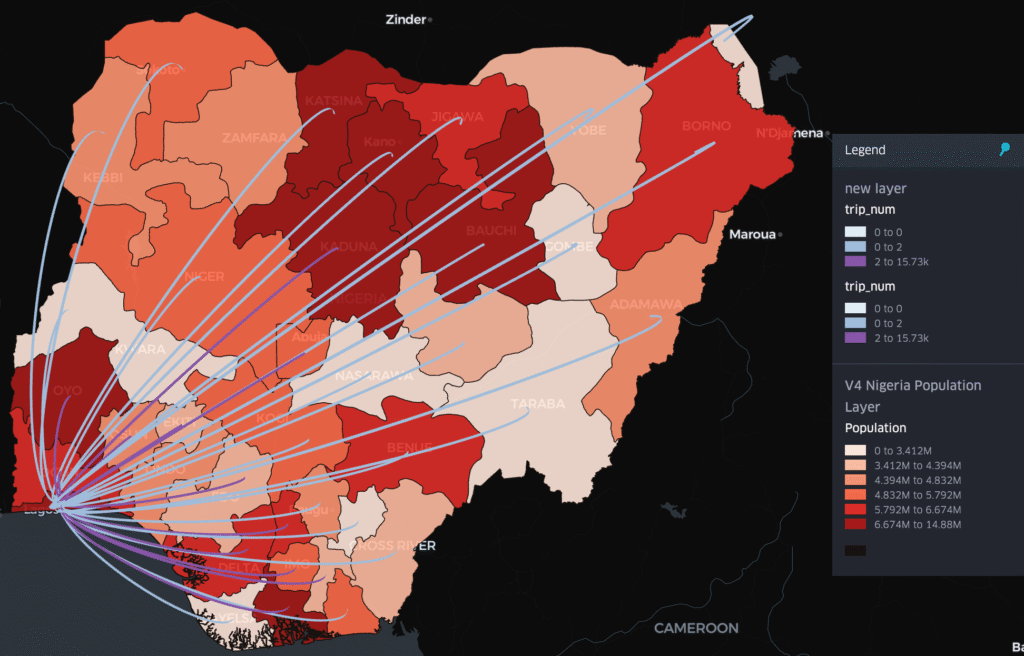
Figure 1a. Daily number of trips on 01/01/2020 projected over a population map of Nigeria.
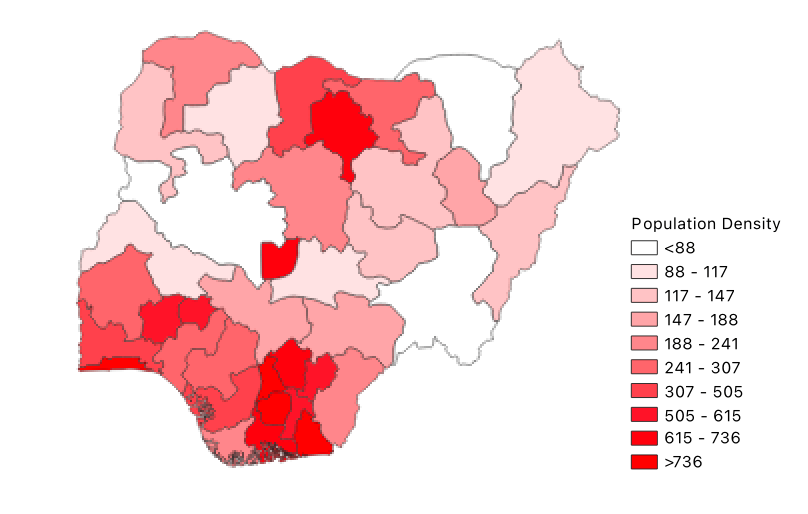
Figure 1b. 2020 population density in Nigeria on 01/01/2020.
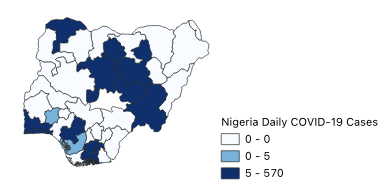
Figure 1c. Daily Covid Cases in Nigeria on 12/31/2020.
The second module focused on data analysis of extreme weather and its relationship with human mobility. Participants explored how climate change influences human behavior and movement patterns, using datasets acquired from satellite imagery and platforms like Google Earth Engine (Figure 2). The module emphasizes integrating climate data with mobility insights and applying spatiotemporal modeling techniques to assess the impacts of climate change on human mobility and disease spread.

The third module focused on POI (Point of Interest) and disaggregate mobility data analysis, emphasizing the relationship between POI data and human movement patterns. Participants learned how to acquire POI data from OpenStreetMap and integrate it with disaggregate mobility data to enhance their understanding of movement behaviors. Additionally, the module explored how extreme weather impacts human mobility and disease spread using Difference-in-Differences (DiD) models, providing a structured approach to quantifying these effects. COMMUNITY ADVISORY BOARD(CAB)
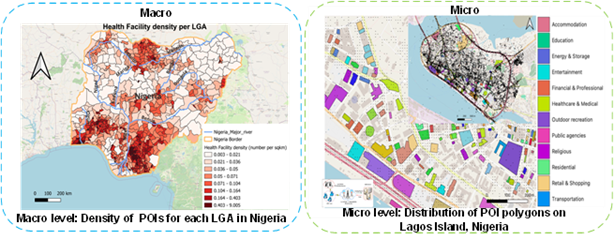
Figure 3. POI and disaggregate data used in the module.
In the following months the NOVA Mobility lab will develop the remaining educational modules in topics of geospatial data visualization, python statistical analysis, artificial intelligence, and machine learning. During this process we plan to collect feedback from internal research members as well as our collaborators from the INFORM-Africa team. Feedback will be incorporated into revisions to improve the efficiency between the Villanova University research team and the INFORM-Africa collaborators. We anticipate deploying the three tiers of learning modules via a cloud based sharing platform nearing the end of March in 2025. From there we will finalize the details for in person intensive training using these modules that will occur in the summer of 2025.



